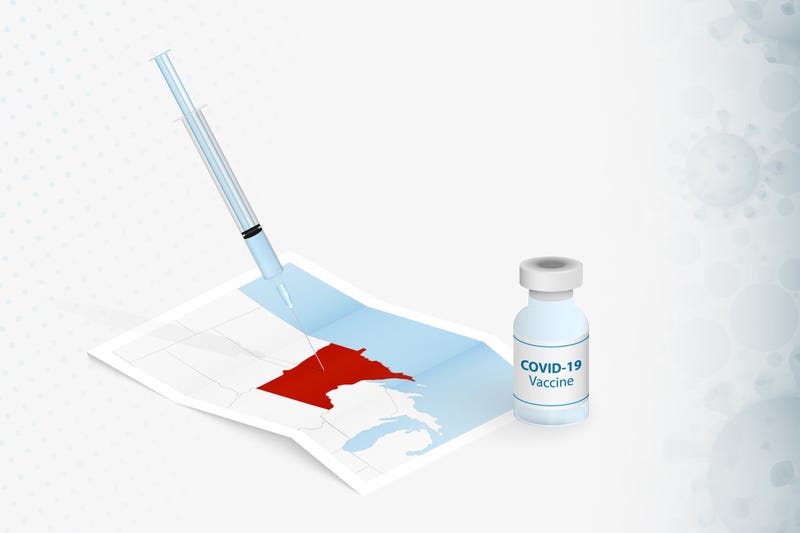
A little more than one year into her tenure as the first Black woman to serve as Commissioner of the Minnesota Department of Health, Dr. Brooke Cunningham is relieved that COVID-19 cases have declined from the pace of previous winter peaks.
Since the coronavirus arrived four years ago, it has taken more than 15,500 Minnesota lives. That’s why the commissioner continues to urge Minnesotans to be vigilant with testing and getting updated vaccines.
“We like to think, we want to think, COVID is gone but people are still getting sick, being hospitalized and, unfortunately, some folk are still dying,” she said.
Commissioner Cunningham, a primary care physician and professor in the Department of Family Medicine and Community Health at the University of Minnesota, said that statistics indicate the post-holiday COVID-19 mini-surge has not been as big—or as deadly—as in previous winters.
But she stressed that the newly identified JN.1 variant is transmissible and can spread throughout the community, including to people who are older or immunocompromised who are at high risk for complications.
That’s why she wants people with symptoms, from chills and fever to coughs and congestion to stomach distress, to have home rapid test for COVID-19 on hand and to isolate if they test positive.
“Test and test a couple of times. Sometimes that first test is not positive but as symptoms continue it may be,” she said.
Commissioner Cunningham reminded Minnesotans who do test positive to reach out to their health care provider to see if they are a candidate for an anti-viral prescription medication like Paxlovid, which is taken by mouth.
“It’s really important to do that when your symptoms start. Paxlovid reduces the intensity of the symptoms but you have to take it in the first five days; if it’s been too long you won’t be eligible for Paxlovid, so don’t wait.”
Late last year, the FDA approved the latest COVID-19 vaccine, and Commissioner Cunningham urges every Minnesotan who is six months of age and older to be sure they have gotten it.
“On a population level, vaccines helps keep those hospitalization numbers low. For individuals, vaccines help prevent the worst outcomes of COVID-19,” she said. “Folk who had the vaccine tend to have less severe illnesses and there seems to be signs in the research they less may have less likelihood to get long COVID.”
Even as Commissioner Cunningham oversees a department with 1,400 employees in the Twin Cities area and seven offices in Greater Minnesota, she continues her work as a doctor at a community clinic in the Phillips neighborhood in South Minneapolis. She often has conversations with her patients who question why she encourages them to schedule updated vaccines when they have gotten previous ones.
“Viruses are tricky things; they develops mutation and they become variants. We like to make sure we have immunity against the more current circulating variants and that’s what the current vaccine will do for us,” she explained.
Commissioner Cunningham’s scholarly research has focused on racial disparities in health and addressing the adverse impacts of exposure to racism. She co-directed the University of Minnesota Medical School’s Diversity, Equity, and Inclusion Thread in medical education. Closing racial gaps in health care is among her top priorities as the leader of the Minnesota Department of Health.
“We know what the root causes are that don’ t create the same opportunities for all people to be healthy,” she said.
Last year the Minnesota Legislature established an Equitable Health Care Task Force through the Minnesota Department of Health. It brings together representatives of under represented groups to identify strategies to ensure that “people living in Minnesota receive care and coverage that is respectful and promotes optimal health outcomes.” Commissioner Cunningham said that she is optimistic following the task force’s recent first meeting.
“Everyone in that room who lives in Minnesota is tired of us saying we have the best health care in the country but some of the worst outcomes. We have to get past that,” she said. “We have to be bold and creative, with systems of accountability. I’m encouraged with the concern and passion, we can do things differently.”
It’s advised that everyone have COVID-19 rapid at-home test kits on hand. Free tests are available to all households, while supplies last. There is no cost for shipping. To request yours you can go here.
